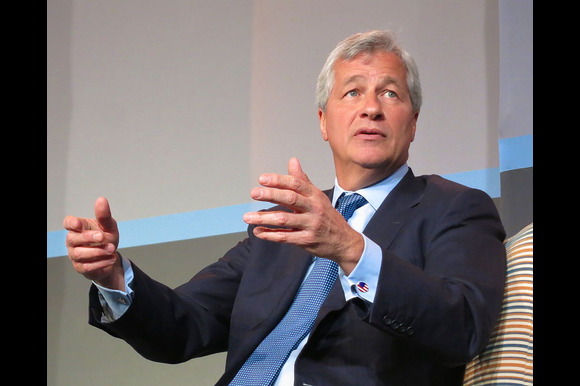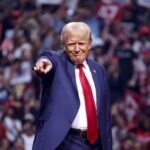On Wednesday, Jamie Dimon, the CEO of JPMorgan Chase, expressed his concerns regarding the extensive tariffs implemented by US President Donald Trump, suggesting that they could potentially trigger a recession and lead to borrower defaults. He shared these insights during an appearance on Fox Business’ “Mornings with Maria.”
Dimon stated, “As long as interest rates continue to rise, inflation remains persistent, and credit spreads widen—which they are likely to do—I anticipate an increase in credit issues.”
He emphasized the need for swift advancements in trade discussions with US trading partners to stabilize the markets, which have been unsettled by the announcement of tariffs. “I hope they can expedite these negotiations,” he remarked, referring to the discussions involving US Treasury Secretary Scott Bessent and other countries. “To soothe the markets, it is essential to demonstrate progress in these areas.”
At 69 years old, Dimon is a leading figure in corporate America and has frequently been sought for advice by government administrations during critical times. His name has been mentioned for high-level economic positions, including Treasury Secretary, during the 2024 presidential campaign, but he has chosen to remain at the bank.
“I maintain a measured perspective, but I believe the situation could deteriorate if we fail to make headway,” Dimon noted.
Following Trump’s announcement of trade barriers, JPMorgan’s economists have increased the likelihood of a recession in the US and globally from 40 percent to 60 percent this year.
Additionally, the longest-serving CEO of a major bank indicated that initial public offerings (IPOs) are being canceled due to the prevailing market volatility.
The adverse aspect of these fluctuating markets is their impact on capital markets and the capacity of companies to secure funding. As a result, initial public offerings (IPOs) are being withdrawn, and there are several stalled transactions in the high-yield sector, along with bridge loans, which collectively hinder progress, he stated.
Prior to Trump’s recent tariff announcement, new tariffs and trade concerns had already led to a 13 percent drop in US mergers and acquisitions during the first quarter, according to Dealogic data compiled for Reuters.
“While volatile markets can be beneficial for our capital markets operations, they typically do not favor equity issuance,” Dimon remarked. In certain instances, international clients have opted for local banks over the US lender.
“We have already lost a few bond deals,” Dimon noted. “They express a preference for working with a local bank rather than a US institution.”
On Wednesday, US stock indexes initially opened lower but later recovered after China declared additional tariffs on US products in response to President Donald Trump’s reciprocal tariffs that took effect earlier that day.
According to China’s finance ministry, the world’s second-largest economy plans to impose an additional 84 percent tariff on all US goods starting April 10, an increase from the previously announced 34 percent.
Dimon also indicated that the economy is experiencing significant instability and that tariffs will have enduring negative effects, as stated in his annual letter released on Monday.






